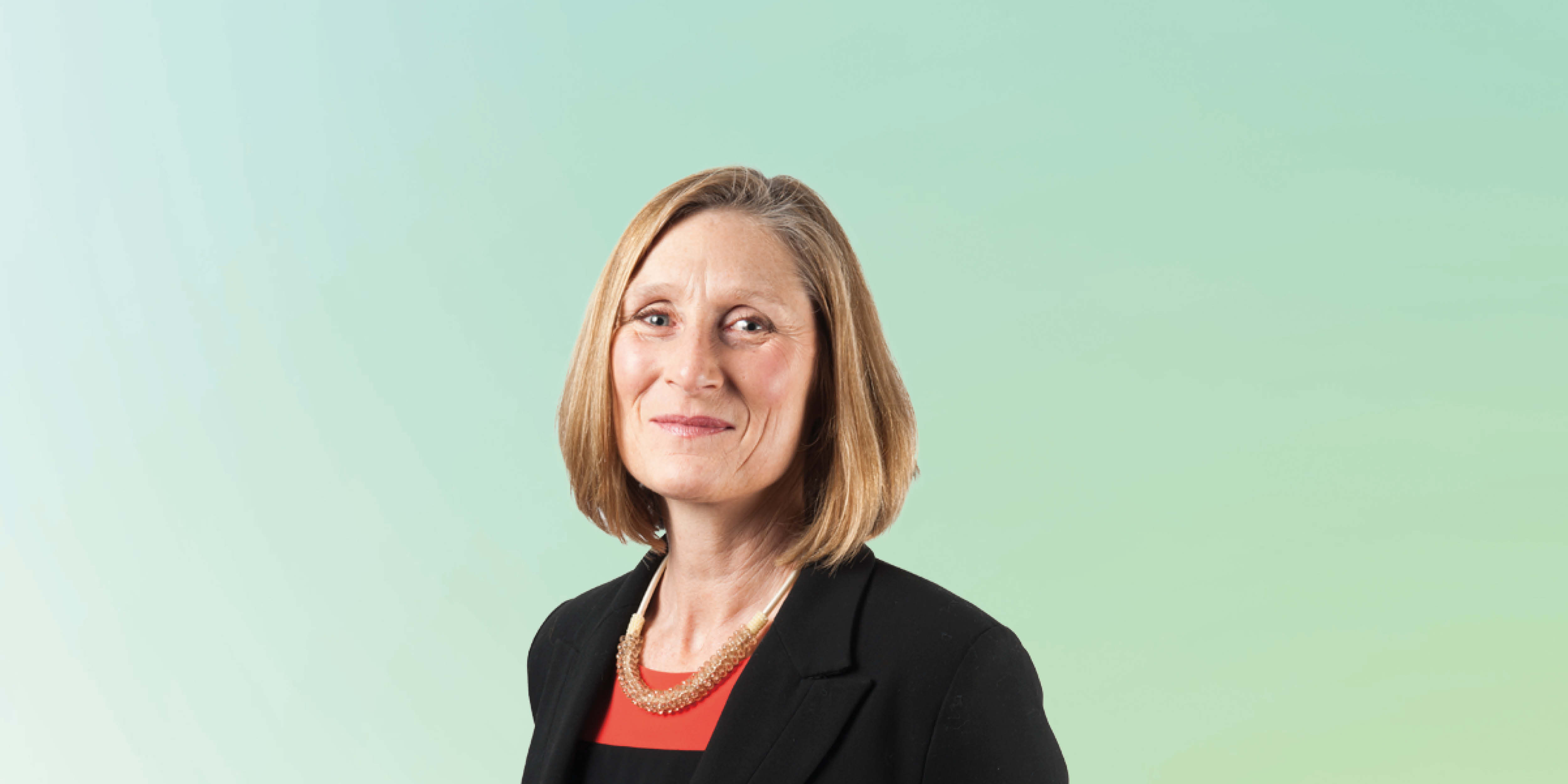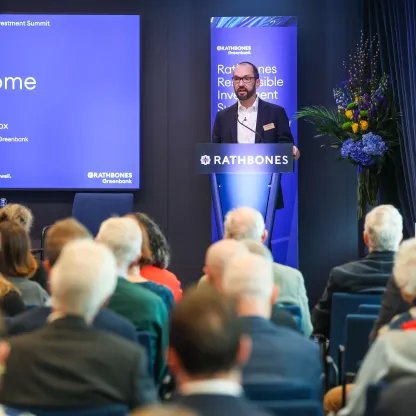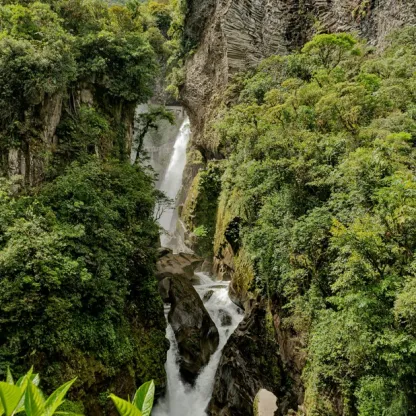To celebrate the 21st anniversary of Greenbank, investment director and founder of Greenbank Elizabeth Haigh sat down with some of the women pioneers and colleagues at Greenbank. For this first session, Elizabeth spoke with Kate Murphy, senior investment analyst and a key founder member of the team who retired in 2024.

Speaking sustainably: A conversation with Kate Murphy
Article last updated 1 July 2025.

Elizabeth Haigh
Investment Director and founder of Greenbank
This year is the 21st anniversary of Greenbank, the specialist ethical and sustainable investing division of Rathbones Group that I founded with colleagues in 2004.
Our style of investment has evolved enormously since I launched a specialist service for individual ethical investors in 1992. It is hard to imagine nowadays the extent of the hostility towards the very concept of ethical investment – although perhaps less so given the attitude of the current US administration towards all things ‘green’.
At the time, it was seen as highly disruptive to the traditional ways of the City where the pursuit of financial return was considered paramount. There was, however, an increasing demand for our approach from investors who wanted their money to align with their personal values. We have been able to demonstrate over the past 21 years that this is possible as responsible investment has become more mainstream, which was always our objective.
I feel very fortunate to have been able to work for so long in a part of the finance industry that has attracted a high number of women investment professionals. This gender balance has allowed many of us to forge our careers in a supportive and collaborative environment.
To celebrate those who helped pave the way for today’s sustainable investment industry, and to find out about the hopes and aspirations of the current generation, I decided to speak to some of the women pioneers and colleagues at Greenbank.
My first conversation is with Kate Murphy, a senior investment analyst who retired from Greenbank in 2024 and was a key founder member of the team.
We began our careers at the same time in the late 1980s when Margaret Thatcher and Ronald Reagan were in power. However, we started out in different areas of the finance sector: Kate joined Henderson Asset Management after studying natural sciences at Exeter University and specialised in institutional investment; I joined Laing & Cruickshank (now part of UBS) in the private client team with a modern and classical languages degree from Bristol University.
I asked Kate how she came to specialise in ethical and sustainable investment. She recalled the wave of enthusiasm for and commitment to social issues in the early 1990s following the anti-apartheid campaigns across our respective university campuses in the 1980s.
In 1992, the Bishop of Oxford challenged the Church Commissioners over whether charity trustees could consider social and environmental factors when making investments, or whether they were required to focus solely on maximising financial return. The bishop argued that charities should align investments with their mission and the case led to a landmark ruling that charities could consider ethical factors as long as they didn’t compromise financial returns and, importantly, could avoid investments that might conflict with their mission or alienate supporters.
This had a huge impact on the investment sector and created a high demand for investment professionals who were prepared to engage with the complexities of the issues at hand and had the experience to address some of the dilemmas.
The Rt Rev Richard Harries, who was Bishop of Oxford at the time, followed up this groundbreaking case by setting up the Christian Ethical Investment Group, which I joined in the early 1990s. I subsequently went on to advise the Church of England as a member of its Ethical Investment Advisory Group from 2012 to 2018. I have always been passionate about social justice and am encouraged to see the work of organisations such as the JustMoney Movement (originally founded as the Ecumenical Council for Corporate Responsibility) continuing to challenge the status quo.
In 1992, the Bishop of Oxford challenged the Church Commissioners over whether charity trustees could consider social and environmental factors when making investments, or whether they were required to focus solely on maximising financial return, which had a huge impact on the investment sector.
Kate and I have both had the privilege of working with many Quaker clients over the years – in fact, we first met in 1994 at a meeting of the Quaker Council on European affairs in Brussels. Little did we know that our paths would cross again 10 years later when Kate moved to Bristol and agreed to help establish Greenbank!
Kate worked for some of the influential Quaker family trusts at Henderson, particularly the Joseph Rowntree Charitable Trust. She recalls that “Quakers take a long view, speak truth to power and apply this thoughtfulness in transformative and impactful ways to address injustice”. In 1984, Quakers had been key to the launch of the Friends Provident Stewardship fund, the UK’s first ethical unit trust, in conjunction with EIRIS, the leading ethical company screening service, now part of Moody’s.
At this time, I was working with the Polden Puckham Charitable Foundation, one of the first such organisations to divest from fossil fuels, as well as many inspiring individual Quakers who were guided by the Quaker teaching of ‘profit with principle’.
While Kate’s academic background seeded her original interest in climate change, nowadays she is disquieted by a widening inequality in society and the continued lack of all forms of diversity in so many workplaces. She is now a trustee of the pioneering organisation Smart Works, a national charity that dresses and coaches unemployed women for job interviews, helping them gain the confidence to secure employment and transform their lives.
I asked her where investors can have the greatest impact in the next 21 years. She began by looking back to what the world was like 21 years ago and believes that the most innovative new thinking during this time has come from the Carbon Tracker Initiative. This independent financial think-tank conducts in-depth analysis of the impact of the energy transition on capital markets and the potential cost of investing in carbon-intensive fossil fuels. Carbon Tracker’s team of experts coined and cemented the terms ‘carbon bubble’, ‘unburnable carbon’ and ‘stranded assets’ in the financial and environmental dictionary. She believes this kind of analysis is incredibly important and should be embedded into all portfolio valuation analysis.
Today, she is most concerned about the dangers of methane emissions; she still has faith in the Global Methane Pledge, launched at COP26, which called for accelerated action to avoid the worst-case scenario by collectively reducing methane emissions by at least 30% by 2030 from 2020 levels. The International Energy Agency estimates that of the 350 million tonnes of methane released each year, 140 million tonnes are estimated to come from the energy industry – and 70% of all emissions could be abated at cost or even at a profit.
The International Energy Agency estimates that of the 350 million tonnes of methane released each year, 140 million tonnes are estimated to come from the energy industry – and 70% of all emissions could be abated at cost or even at a profit.
She worries that the window to limit carbon emissions is closing, so over the next 21 years resilience building and mitigation will probably matter most. She feels strongly that investors should remain focused on sustainable infrastructure projects that are cost-effective and benefit communities, citing the 30-year legacy of Bristol-based Thrive Renewables PLC as testament to this approach.
But most important, in her words, is the need to “keep holding to account – root out unfairness and greed and collaborate with allies to achieve a fairer world and a just transition”.




